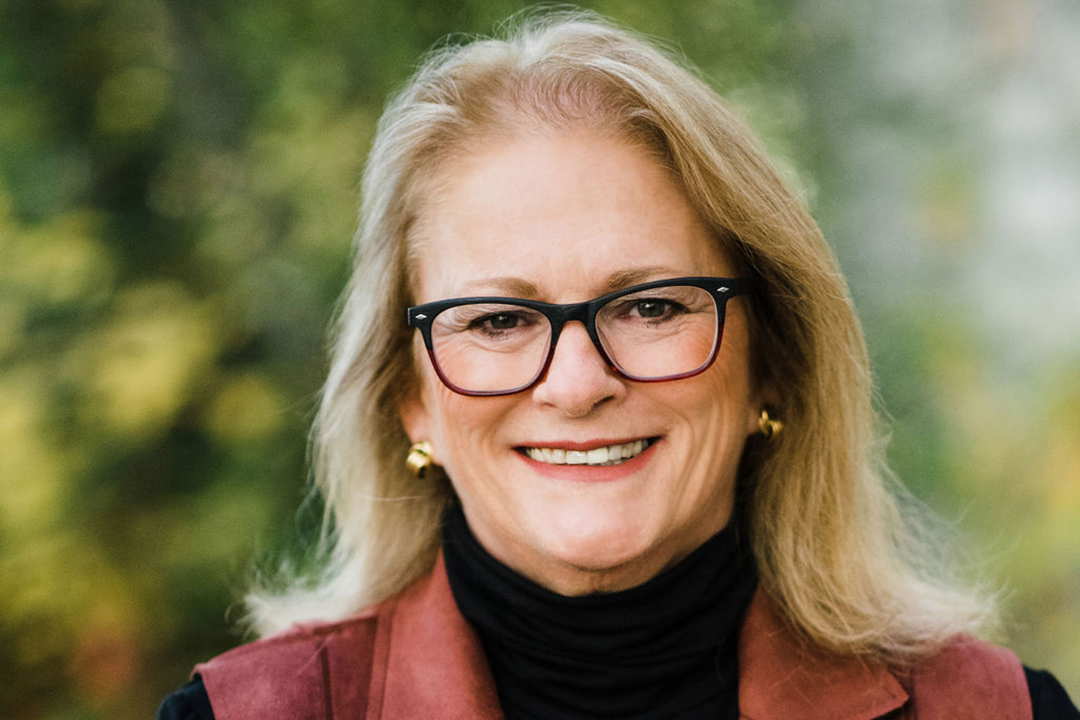
USask nursing meets the challenge of the pandemic
“Be kind, be calm, and be safe.” During this challenging time in history, the mantra of noted Canadian physician Dr. Bonnie Henry (MD) brings comfort to College of Nursing interim dean Cindy Peternelj-Taylor.
By Kylie KelsoAs she looks back on her nursing career spanning more than three decades at the University of Saskatchewan (USask), Peternelj-Taylor cannot remember a time when nursing faced so much uncertainty.
“Amongst all the uncertainty that the global pandemic has created, one thing we know for sure is that nursing is a dynamic profession, always changing to meet the needs of individual clients, their families, and their communities, both locally and globally,” said Peternelj-Taylor. “If there is a group of people who can push through uncertainty, adapt well to change, and think on their feet, it is nurses.”
Change is constant in nursing, including the transition from hospital-based training programs, through diploma prepared programs, to the requirement of baccalaureate education. Increasingly, nurses are engaging in graduate education, including doctoral education, in order to assume advanced practice roles. And in 2020, the International Year of the Nurse and the Midwife, no longer were nurses simply portrayed as “Angles of Mercy”, as the public reimagined nurses as superheroes working on the front line of the COVID-19 pandemic.
Probably the most significant change Peternelj-Taylor has witnessed during her time in nursing is the career path graduates follow. Traditionally, nurses worked in institutions, such as hospitals and long-term care homes and although many still follow this important and essential path, the role of the nurse has significantly evolved, as have the environments in which they practice. Many nurses work in areas not typically portrayed on the evening news during times like this global pandemic.
Nursing education encourages students to think about the challenges they see today and apply their learning to create a better tomorrow. Although working on the front-lines of a pandemic may feel overwhelming and lead some nurses to question their career choices, Peternelj-Taylor reminds alumni and current students that nurses have shaped the health of the world, long before COVID-19, and they will be there long after the pandemic is a memory. At the same time, she doesn’t want to minimize the realities of the pandemic and its individual and collective impact on the people of Saskatchewan, including the College of Nursing.
Not only has the nursing profession changed over the years, so too has nursing education. Since Peternelj-Taylor began her career at USask, the College of Nursing has gone from admitting 80 students to 345 students per year now, making nursing the largest non-departmentalized college on campus.
“Our college has continued to develop and advance, and to expand to meet the growing need for nurses in the growing field of health care in this province and this country,” said Peternelj-Taylor.
The challenges posed by the declaration of the pandemic on March 11, 2020, forced the college to adapt and evolve. What was once learned in a classroom and through clinical practice environments, had to be completely reimagined. Fortunately for the College of Nursing, online program delivery and the use of clinical simulation is not new. For over a decade, the college has been delivering programming online in both undergraduate and graduate programs and thanks to IT support, the college has continued to expand its online presence.
Over the past nine months, the College of Nursing has been working to move the delivery of all theory classes from in-person to remote delivery and to restructure in-person labs. The most significant challenge for the college has been the management of student clinical experiences.
“It has been particularly challenging to plan for these placements during these unprecedented times, especially when one considers the majority of nursing clinical placements take place in hospitals, long-term care facilities, and schools – settings that are under tight restrictions during COVID-19,” said Peternelj-Taylor.
The interim dean is proud of the way faculty and staff have pulled together to ensure nursing students remain on track as they move through their programs of study. Instructors have transitioned established clinical placements into innovative clinical experiences, such as the creation of the Negative COVID Callback Centre in Saskatoon, where fourth-year nursing students communicate negative COVID test results in a timely manner, thereby providing meaningful support to the community during the pandemic.
COVID-19 has certainly changed nursing forever. But even with all the new challenges and risks it has posed for front-line health-care workers, in particular nurses, Peternelj-Taylor is confident the world will get through it.
“Nurses are resilient, creative thinkers, dedicated to interprofessional collaboration,” she said. “The profession will make the most of these extraordinary times and emerge stronger than ever before.”

